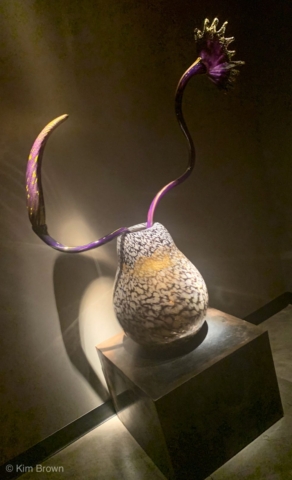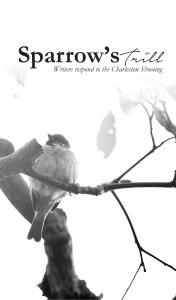Whenever I take a big trip, I vow to write down my observations, discoveries, and thoughts so that I can remember the nuances of the place I’m visiting. The first few days I feverish write in my journal about what I saw, the food I ate and my overall impressions. My intention is to use these notes for a blog post or an essay. And believe it or not, it sometimes works. But more often my intentions fizzle by the third day of my trip.
Maybe it’s grandiose, but I keep hearing Jean Picard from Star Trek in my head saying, “Captain’s log, 02-2020.” It makes me think I should keep a log of my trip by blogging as I go.
It sounds like nerdy fun, but I have to admit I’m nervous. It generally takes me all day to write a blog post. My perfectionist has a hard time letting go. And who wants to spend her vacation in her hotel room revising and revising her blog?
Not me!
But maybe there’s another way to think about it.
The authors of Art & Fear talk about an experiment with two sets of artists. The first set had to complete a painting a day and the other group worked on one painting the entire time. The group that did a painting a day showed vast improvement in their skill. They didn’t have time to fuss with their mistakes. They had to move on.
Writing on the fly has the potential to make us better writers. It forces us to quiet our inner critic and focus on getting words on the page.
So I’m going to test that theory by starting my spin on the captain’s log. So here we go. . .
Kim’s Travel log 02032020
We (my husband and I) landed in Zurich, Switzerland Saturday morning. We breezed through customs. The lines were relatively short and moved quickly. Then we took a two-hour train done to Lausanne. During most of the train ride, we were blurry-eyed and unable to sustain a conversation. Neither of us got much sleep on the plane. My husband fell asleep. I tried to keep my eyes open as we rode through the Swiss countryside. The houses and apartment buildings along the train tracks looked decidedly European.
Once at our hotel, we got a partial view of Lake Geneva and the Alps. It was cloudy and drizzly.

After a quick two hour nap, we headed out to take a better look at the view. As we walked along the path next to the lake, I felt such a sense of peace.
The next day, Michael had to meet with his team, so I was on my own to explore. My first stop was the Olympic Museum.
Lausanne is the Olympics capital, housing the international Olympic Committee. I wouldn’t describe myself as overly interested in the Olympics, but I thought it was worthwhile to see what the museum had to offer.
The Olympic museum sits on top of a hill facing Lake Geneva. There are several steps leading up to the building. Enough that I questioned whether or not it was worth the climb. But I decided it was.
Every fourth step has the city and the year of a specific game. It’s surrounded by a beautiful park with bronze statues of different sports. All of the statues were of men and they were nude. It sort of made me chuckle because who rides their bike in the nude? Nonetheless, the statues were beautiful.

Just outside of the museum, there is a flame burning.

I wasn’t sure what I would find inside, and to be honest I doubted it would take me very long to make my way through it. But surprisedly, I was totally engrossed in the exhibits and displays.
I loved learning that the Olympic Games started in 776 BC as a festival worshiping Zeus. They ended when a Christian emperor stopped the games in 393 AD because they were seen as pagan worship.
I also found it interesting that during the Olympic Games the various countries that participated entered into a peace treaty so that the athletes could travel to Athens in safety. There is still a similar type of agreement in place today.
There was an entire exhibit hall dedicated to Pierre De Coubertin, who is seen as the father of the modern Olympics. I found his thoughts on the importance of the games inspiring.
There was also a fascinating display of all the torches used in the modern games. I especially liked seeing the torch from the 1996 games held in Atlanta, which I attended. Just seeing the torch bought back the emotions I felt when Muhammad Ali ran into the stadium carrying it. I admit I got a little choked up when I saw a video loop replaying that moment.
One of the exhibits had equipment, uniforms, trunks, and shoes from certain Olympic winners. The most exciting to me was seeing Michael Phelps’s swim tights, Usain Bolt’s jersey and the ball used by the original dream team. And seeing Jesse Owens shoe was especially poignant. I couldn’t help but think about the plight of the world when he won back in 1936. It was another emotional moment.




I left the museum with three inspirational thoughts that easily apply to writing:
• Look ahead, speak frankly, act boldly.” This was Pierre de Coubertin’s personal philosophy. This sentiment is at heart of what we do as writers. We see beyond the moment, speak our truth and act boldly by being courageous enough to share our work.
• The Olympic Spirit is to build a better world by improving relations between people and the way they live. We as writers endeavor to do the same thing by sharing our stories and giving voice to the marginalized. And this is achieved the same way athletes do it, by focusing on three key values: excellence, solidarity, and respect.
• “The important thing in life is not the triumph, but the fight; the essential thing is not to have won, but to have fought well.” — Pierre de Coubertin. This sort of sums up the reason we endeavor to keep our butts in the chair.
That’s all I have for today. More tomorrow.










 A covered coffee mug. My writing mentor, Rosemary Daniell, recently had the
A covered coffee mug. My writing mentor, Rosemary Daniell, recently had the Sitting for long periods of time at the computer can wreak havoc on your back. I often wonder if part of the problem with keeping my butt in the chair is that it makes my back hurt. Though I know
Sitting for long periods of time at the computer can wreak havoc on your back. I often wonder if part of the problem with keeping my butt in the chair is that it makes my back hurt. Though I know
